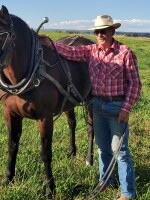According to U.S. Secretary of Agriculture Tom Vilsack, the Administration is taking an all-hands-on- deck approach to the cross-species outbreak of highly pathogenic avian influenza, that’s affected seven dairy cattle herds in Texas, two in Kansas, and one each in Idaho, Michigan, and New Mexico. One person has been identified as having the virus, possibly due to their exposure to infected cows, but they have only exhibited minor symptoms. While this response may seem to be an over reaction, the COVID outbreak is probably still fresh in the minds of government officials. However, poultry producers continue to be affected by the disease. Cal-Maine Foods Inc., the largest egg producer in the U.S., has culled almost 4% of its laying hens, when birds at its Texas facility tested positive for HPAI. As a result, nearly 1.6 million laying hens and 337,000 pullets were destroyed and production was shut down. Also, live and feeder cattle futures were down sharply last week due to concerns about HPAI, which was driven somewhat by cattle futures funds selling and liquidation of their futures positions.
CSU Montezuma County Extension has announced the 2024 Land Management Workshop series that will offer three workshops in April and May. All of the workshops will be presented at Fozzie’s Farm near Lewis, Colorado. On April 12th, Extension County Director Emily Lockhard, and John Rizza, Colorado Department of Agriculture Soil Health Coordinator, will present a soil testing workshop from 9:30 am until noon. On April 22nd, Emily Lochard, Brenda Funk and Beth LaShelle will present Pasture Renovation and Grazing Management workshops from 3 to 7 pm, and on May 10th, Dolores County Extension Director Gus Westerman, will present a Weed Management workshop from 10 am to 12 pm. Online registration for these workshops can be found here: https://www.eventbrite.com/o/csu-extension-montezuma-county-33023504629
Spring is always a busy time in farm and ranch country. Farmers in the southeast U.S. are finishing up planting corn, soybeans, and cotton while farmers in the Midwest are completing field work in preparation for putting seed into the ground. Here in the southwest, stock men and women are overseeing calving and lambing, while also preparing to irrigate crop fields and pastures. Farmers in the southeast and Midwest depend on rainfall to water their fields, so when I talk to Midwest farmers, and describe how we grow crops and pastures here in southwest Colorado, they’re often amazed, and sometimes skeptical, about our dependence on irrigation to grow crops, gardens and forage for our livestock. They often don’t understand why we can’t just stick a pipe into a river or stream that runs through our farms to suck up water for irrigation, as is permissible in most states east of the Mississippi. Water in the West is a valuable commodity, and we’re seeing that play out especially in the lower Colorado River Basin states of Nevada, Arizona and California. With Arizona in the middle of it’s longest drought in about 1,200 years, the state is facing a possible 18% cut in Colorado River water allocations from the Bureau of Reclamation this year, and farmers may well also be in the cross hairs of cities and land developers to cut their water usage. More on this topic next week.
American broadcast journalist and war correspondent Edward R. Murrow said, “The obscure we see eventually. The completely obvious, it seems, takes longer.”



